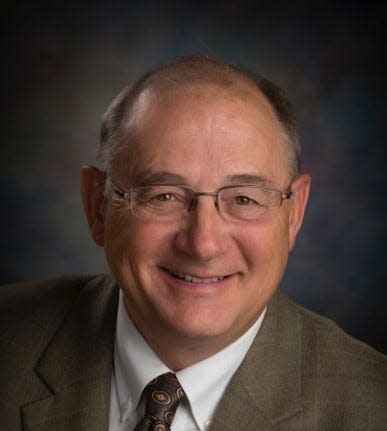This education program benefits rural Kansas schools and our future leaders learning there

Rural schools did right by me. I grew up in Fredonia, Kansas, and Fredonia High School instilled in me the core values and the academic foundation that allowed me to return to rural Kansas as a doctor.
It was at Fredonia High School where I learned basic biology and bedside manner, the two most fundamental skills in medicine.
Rural kids and the rural schools they attend do not grab headlines, but they deserve every bit as much attention and respect as big urban school districts. They deserve the same tutoring, the same local resources, and the same enrichment opportunities as their big city counterparts.
Under the Kansas Educational Enrichment Program (KEEP) — which gives eligible students $1,000 for educational opportunities, from tutoring to laptops — rural students are getting exactly those resources. It is because of my commitment to rural education that I will work to solidify and expand programs like KEEP in the coming legislative session.
This is about our students today just as much as it is about the future of America. After all, rural Kansas schools have produced the likes of Dwight D. Eisenhower, Jack Kilby and Bob Dole (not to mention a doctor or two). There is no doubt that many such future leaders are walking the halls of Kansas schools right now.
KEEP is helping to build the next generation. Already tens of thousands of students, representing all of Kansas' 105 (mostly rural) counties, have received extra help. Yet this is not just about additional financial resources — study after study has found intensive tutoring to be one of the most effective tools to make up for gaps in reading, writing and critical thinking.
There are ancillary benefits for rural economies, too. Those administering the KEEP program made the insightful decision to prioritize local education providers. Students can get face-to-face tutoring, where they learn social skills in real life, not just online, and real-life interactions are far more effective for children.
The KEEP program has also fostered development of a burgeoning educational support community in rural towns.
Rural Kansas did not lack for smart people capable of tutoring. It lacked for students who could afford it. Thanks to KEEP, local jobs can develop to serve as a resource for rural students.
This program has done too much good to not preserve or even expand it in the next legislative session. It is too important for students, for parents, for local communities, and most critically, for the future of Kansas.
We must build on KEEP’s success and continue to grow resources that support rural Kansas students.
John Eplee represents Kansas’ 63rd District in the Statehouse and lives in Atchison, where he has practiced family medicine for 42 years.
This article originally appeared on Topeka Capital-Journal: KEEP benefits rural Kansas schools and our future leaders
